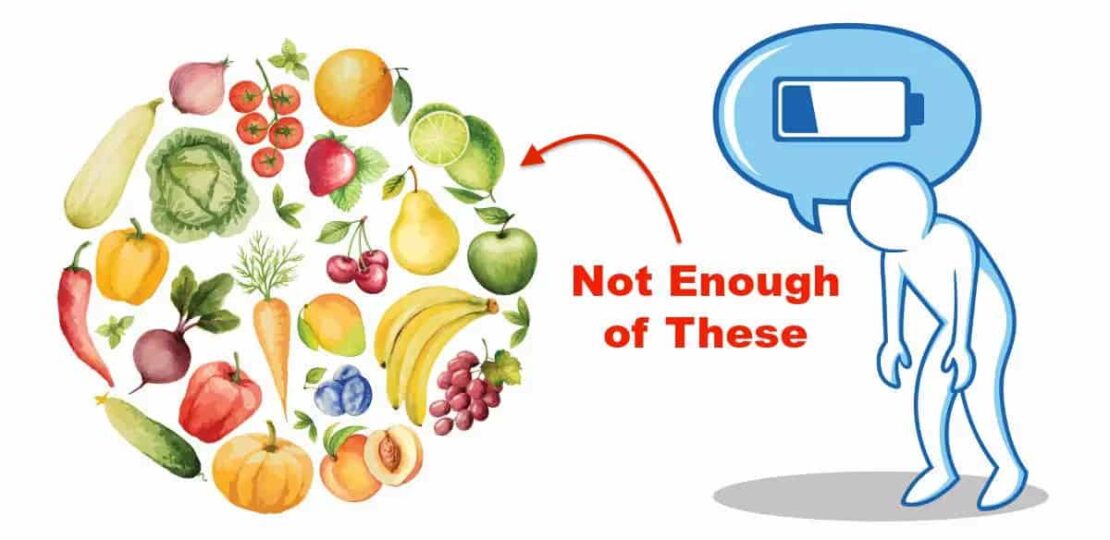Why You’re Still Tired Even After Eating Healthy
October 21, 2025 | by IoT Development Company

You’ve swapped fast food for salads, added smoothies to your mornings, and even started counting your nutrients yet somehow, you still feel exhausted. Many people experience this paradox where eating “healthy” doesn’t instantly translate to feeling more energetic. The truth is, fatigue is rarely caused by diet alone. It’s often a mix of nutritional gaps, lifestyle habits, and hidden health issues. Let’s explore why you might still feel tired, even when your plate looks perfect.
1. You Might Not Be Eating Enough Calories
When people start eating healthy, they often cut calories unintentionally. Whole foods like fruits, vegetables, and lean proteins are nutrient-rich but naturally lower in calories compared to processed foods. If your calorie intake drops too low, your body starts conserving energy. This means your metabolism slows down, and fatigue creeps in.
Your body needs a steady energy supply to keep essential functions running like breathing, digesting, and keeping your heart beating. Add exercise or an active job to the mix, and you need even more. Eating too little can make you feel weak, dizzy, and mentally foggy. The solution isn’t to eat junk food again, but to ensure your healthy diet still meets your energy needs.
2. Hidden Nutrient Deficiencies Could Be Draining You
Even the healthiest diets can miss key nutrients. Modern farming practices and food processing can deplete essential minerals and vitamins from our food. Common deficiencies that cause tiredness include:
- Iron deficiency: Reduces oxygen flow to cells, causing fatigue.
- Vitamin B12 deficiency: Affects energy metabolism and nerve function.
- Vitamin D deficiency: Linked to low energy and mood swings.
- Magnesium deficiency: Impacts muscle function and sleep quality.
Even if you eat a balanced diet, your body might not absorb nutrients efficiently due to gut health issues or genetics. The best way to find out is through a simple blood test. Addressing deficiencies with targeted foods or supplements can dramatically improve how you feel.
3. Sleep Quality Matters More Than You Think
Food fuels the body, but sleep restores it. If you’re eating well but not sleeping properly, your body can’t recover. Poor sleep disrupts your hormones especially cortisol and insulin which leads to daytime fatigue, cravings, and reduced mental focus.
Things like scrolling through your phone before bed, inconsistent sleep schedules, or even mild sleep apnea can prevent deep, restorative rest. To recharge properly, aim for 7 to 9 hours of quality sleep every night. Make your bedroom dark, quiet, and cool, and limit caffeine intake after midday.
4. Blood Sugar Fluctuations Can Cause Energy Crashes
Eating healthy doesn’t always mean eating balanced. Meals high in natural sugars but low in protein or fat can cause sharp spikes and crashes in blood sugar levels. For example, a fruit-only breakfast might seem wholesome, but it can leave you feeling tired a few hours later.
To maintain steady energy, each meal should include a balance of complex carbs, proteins, and healthy fats. Oatmeal with nuts and seeds, or fruit paired with Greek yogurt, can prevent sugar dips and stabilize energy throughout the day.
5. Overtraining and Under-Recovery
If you’ve combined your new diet with intense exercise, you may be overdoing it. Exercise boosts health, but without adequate rest, it leads to burnout. Overtraining elevates stress hormones and depletes energy stores, leaving you fatigued instead of refreshed.
Your muscles need time to repair and rebuild. Include rest days in your workout routine, stretch after exercise, and prioritize hydration and protein-rich recovery meals. Remember—progress comes from balance, not exhaustion.
6. Chronic Stress Can Deplete Your Energy Reserves
Your mind and body are deeply connected. Constant stress keeps your body in “fight or flight” mode, producing cortisol and adrenaline. Over time, these hormones become imbalanced, and you start feeling drained no matter how healthy your meals are.
Even good stress, like work pressure or personal goals, can take a toll. Managing stress through mindfulness, journaling, or meditation can help restore your energy. Sometimes, mental rest is the missing ingredient in your wellness routine.
7. Your Gut Health Could Be the Missing Link
You are what you absorb, not just what you eat. Poor gut health can interfere with nutrient absorption, leading to fatigue even when your diet is nutrient-rich. Conditions like irritable bowel syndrome (IBS), leaky gut, or food sensitivities can cause bloating, discomfort, and low energy.
If you often feel tired after eating, or experience digestive discomfort, your gut might need attention. Adding probiotic-rich foods like yogurt, kefir, and fermented vegetables can improve gut balance. If symptoms persist, consult a nutritionist or doctor for personalized guidance.
8. Dehydration and Electrolyte Imbalance
Fatigue isn’t always caused by food sometimes it’s about fluids. Even mild dehydration can affect concentration, alertness, and physical performance. You lose water not only through sweating but also through breathing and digestion.
Moreover, electrolytes like sodium, potassium, and magnesium play a vital role in maintaining hydration and muscle function. If you drink plenty of water but still feel tired, you might need more electrolytes. Include hydrating foods like cucumbers, watermelon, bananas, and avocados in your diet.
9. Possible Underlying Health Conditions
If you’ve optimized your diet, sleep, and stress levels but still feel constantly tired, it’s worth getting checked for underlying health conditions. Fatigue is a common symptom of thyroid disorders, anemia, diabetes, hormonal imbalances, or chronic fatigue syndrome.
Getting a full blood panel from a trusted diagnostic lab can help pinpoint the root cause. Early diagnosis allows for timely treatment and prevents long-term complications.
View Your Diagnostic Report from IDC Islamabad
Conclusion: Balance Is the True Key to Energy
Eating healthy is one of the best things you can do for your body, but it’s only one part of a larger picture. True energy comes from a balanced combination of proper nutrition, restful sleep, mental calm, hydration, and self-care.
If you’re still feeling tired despite your healthy habits, your body might be sending you a message. Listen to it closely, identify what’s missing, and make adjustments gradually. Remember, health isn’t about perfection, it’s about balance. When you nourish your body, rest your mind, and support your overall well-being, genuine energy follows naturally.
RELATED POSTS
View all



